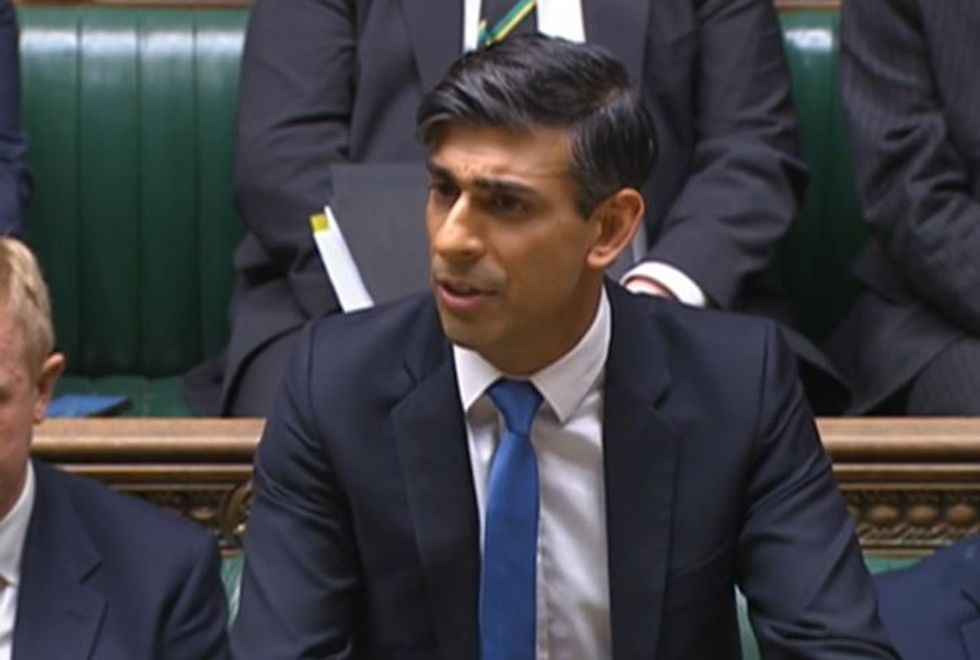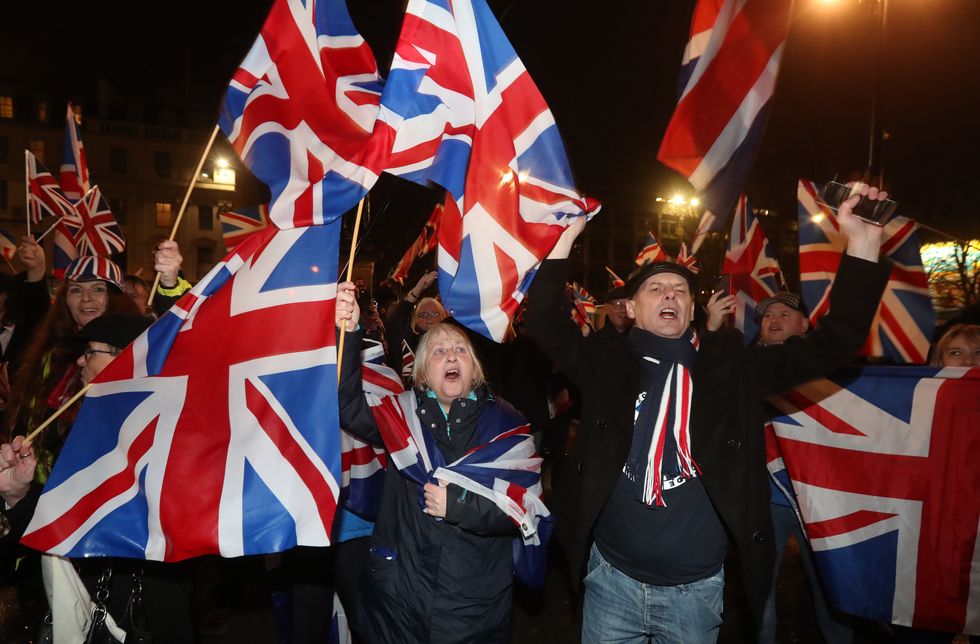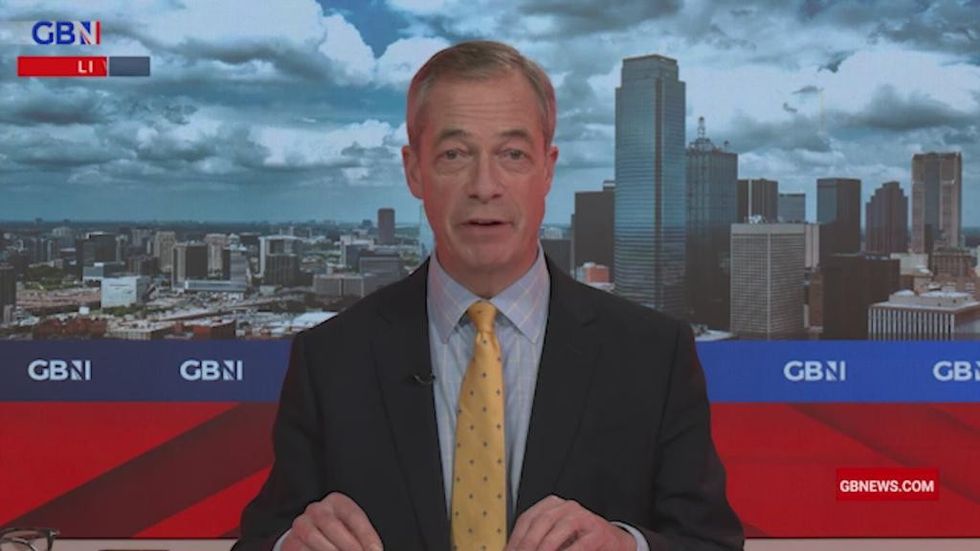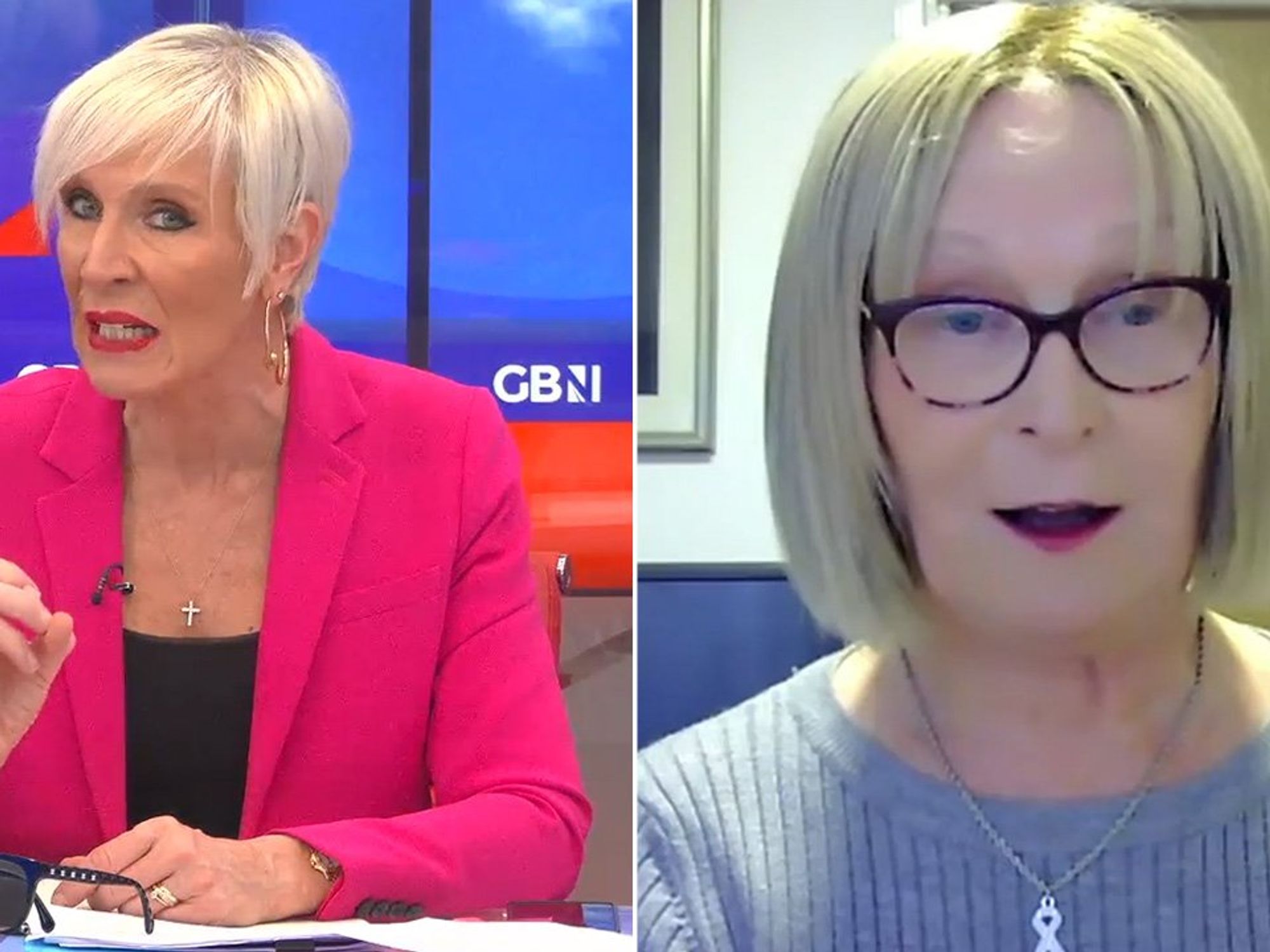'I don’t do f***ing details': What Henry Bolton was told as he reveals biggest Brexit lesson four years on

Some of London's outer boroughs were very pro-Brexit | GETTY

Henry Bolton MP gives his verdict on Brexit and the last four years exclusively for GBN members
Don't Miss
Most Read
Along with thousands of fellow Brexiteers, I spent the evening of the 31st January 2020 in Parliament Square, celebrating our departure from the European Union. The atmosphere was one of celebration. In the Westminster Arms, the drink flowed and toasts among politicians and staffers were to “a job done”.
Was I the only one who thought that, far from the job being done, the hard work was ahead of us, not behind? Was I the only one concerned that we had no vision or plan? We had an immense task ahead of us: to build an independent, confident, optimistic, prosperous, secure and respected nation. But it was as if the entire Leave camp assumed that the act of leaving the EU would itself deliver change or, if they understood the challenge, they considered it so immense that they were ignoring it.
Since the beginning of the referendum campaign, I had done all I could to persuade leaders of the Leave campaign to present a unifying vision for a post-Brexit Britain and to define a trajectory and plan for getting there. But the ubiquitous response was, as it still is, “Nobody is interested in details Henry. The media isn’t (true), and the public doesn’t have the time or attention span to listen to detail (also true)”.
However, I argued persistently that it was the detail that would make or break Brexit, and that with no plan, if we won the referendum, there’d be a long pause while the Government tried to figure out what to do, during which the Remain/Rejoin camp would regroup, would point to the lack of progress and erode the political will to implement Brexit fully. But my warnings fell on deaf ears. When I pushed particularly hard, one very prominent Brexiteer shouted down the phone at me “I don’t do f***ing details Henry. Nobody is interested in the f***ing detail!”.

January 31, 2024, marks four years since Britain left the EU
|Getty Images
But back in the basement bar of the Westminster Arms, four years ago today, I decided to put all these thoughts to one side, have another large glass of wine or two and join the festivities. After all, Brexit had worked. It had taken us out of the European Union, and it had given us independence in all areas of law, Government and public administration; it gave us freedom to make the decisions and carry out the actions that we needed, to make the United Kingdom, once again, a truly confident, optimistic, prosperous and secure, outward-looking trading nation; a nation respected as a firm and steadfast partner by our friends and allies in the Commonwealth and beyond. It was now up to us.
But following a fun night and a hangover the next day, reality was unchanged. There was and there still is still no post-Brexit vision or plan. There had been a serious failure of foresight from the Leave camp and, while I hugely respect Boris Johnson, Richard Tice, Arron Banks and, above all, Nigel Farage, for obtaining and then winning the referendum, they must all, collectively, take the blame for the shambles we’ve seen since. As the saying goes, “p*ss poor preparation, leads to p*ss poor performance.”
Brexit did all that it could. It delivered independence, but nobody had thought about what we should do with that independence. Prominent politicians made a range of very popular promises, but they had consciously avoided any planning to deliver them.
Brexit was only ever going to deliver the freedom to act. From then on, it was, and still is, up to us how to act. And, to act, you must have vision, personality, will, courage, knowledge and a plan. All were, and largely still are, lacking.
POLITICS LATEST:
Sunak put Brexit first when he came into office with one of his first acts being to negotiate and sign the Windsor Protocol
| PASo, as I’d warned, the inevitable and predictable occurred. A long and disappointing period followed our departure from the European Union four years ago. True, we had the Covid pandemic, and then war broke out in Ukraine. Both had a deep, comprehensive and lasting impact on the economies of the world, including ours, and they took up much of the bandwidth of the Government. But surely, there is no excuse for the failure to assert control over our borders, and still less for increasing immigration to record levels rather than reducing it to the “tens of thousands” we were promised.
The Government has failed to take control of our borders, has failed to cut red tape, has failed our fishing industry – particularly the under 10-metre fleet – and failed our exporters, importers and consumers, causing disruption and costing the economy untold millions by leaving it until the last moment to assess the need for, plan and establish the necessary border facilities ahead of the imposition of new controls.
The country rightly and understandably feels let down and, to a large extent, lied to.
Then, along came Rishi Sunak.
One of Sunak’s first acts was to negotiate and sign the Windsor Protocol, effectively creating a border between Northern Ireland and the rest of the United Kingdom. This was the single most serious act of harm inflicted on the Union for around a hundred years, and it was entirely unnecessary. It occurred because Sunak smelled political opportunity and because the conditions for it had been set when Theresa May, in an apparent act of lunacy or total ignorance, agreed with Brussels that the responsibility for finding a solution to the EU’s new external land border rested with the UK. It did not. The problem in fact rests within the EU’s own treaties and laws, not ours (a lengthy story that I’m happy to take up on another occasion).

Britain's economy has unquestionably benefited from Brexit
|PA
As if that was not bad enough, we now hear that to get the Northern Ireland Assembly up and running again, the Prime Minister has agreed to some sort of dynamic alignment between the EU and the whole of the United Kingdom. What he seems to have done, although the text has yet to be made public, is to suggest that the Windsor Protocol should apply across the whole United Kingdom, meaning that the whole of the UK’s legislative process will most probably be constrained by EU legislation. If that is indeed the case, bearing in mind that the EU itself is still to agree, it would be an appalling capitulation to Brussels and a serious insult to Leave voters on the fourth anniversary of Brexit.
That all said, the economy has unquestionably benefited from Brexit.
Between the second quarter of 2016 (the first quarter before the referendum) and the most recent figure for the third quarter of 2023, the British economy grew by only 9.1 per cent.
That’s not much more than one per cent a year, but let’s place that in context shall we? In Spain, growth over the same period was 8.3 per cent. In both France and Italy it was at 5.5 and 5.3 per cent respectively, and in Germany, the rock of the EU economy, GDP rose by just 6.2 per cent. - Brexit 1, Remain 0.
Remainers (or Rejoiners) continually told us before we left that trade would suffer as a result of Brexit. They said trade would be more difficult. They were categorically wrong. Despite Covid, war in Ukraine and the Middle East, and recession affecting the Eurozone, UK trade has in fact grown, both with the EU and with the rest of the world. Exports to the EU since the referendum are up 39.1 per cent, those to the rest of the world are up 57 per cent – Brexit 2, Remain 0.
Furthermore, the UK-EU trade deal, which came into force on 1 January 2021. prevents any tariffs and quotas being introduced. – Brexit 3, Remain 0.
“Ah”, say the nay-sayers, that’s all in the service sector (wrong). What about manufacturing?” Well, UK output has grown by 7.6 per cent, whereas, in Germany, manufacturing output is actually 6 per cent lower than it was in the first half of 2016. - Brexit 4, Remain 0.

Bolton put the score at Brexit 4, Remain 0
| GB NewsSo, to summarise, four years on, Brexit has delivered all that any honest person could have expected it to: it delivered freedom in law, Government and public administration for our politicians to make bespoke decisions, without the constraints of a foreign power, and in the best interests of the United Kingdom and the British people. However, our political class failed to plan and prepare for the immense complexity of leaving the European Union. They had no vision and no plan and so their response has been largely ad-hoc, media-driven and incoherent. It has lacked leadership and direction.
What Brexit has revealed is not that there was any great risk in leaving the European Union, there wasn’t, but that our present cadre of politicians have not been up to the task of exploiting the opportunities it presents. They have lacked the vision, character, courage and strategic grasp to do so. That, perhaps, is the biggest lesson of Brexit so far – we must stop voting for people or parties without a credible plan (and a shopping list of promises or intentions is no a plan) stop voting tribally or because we dislike ‘the others’ and, instead start electing truly visionary and capable leaders with personality, courage and the ethos to serve the whole country, not just themselves or their caste. If such people are not on the ballot, don’t give them the job of running the country.
That said, trade has undeniably increased, and the economy, when placed in the context of the Western European countries of the European Union, has also unquestionably grown faster than they have since the referendum in 2016.
Yes, the Remain/Rejoiner die-hards will make assertions that trade and the economy would have grown even faster had we not left the European Union, but we did, and they have no evidence to support their imagination. Their arguments are ideologically driven rather than evidence-based and fly in the face of undeniable facts.
That said, if Rishi Sunak does not deliver on borders and immigration, and if he does indeed tie the whole of the United Kingdom into an alignment with the European Union, he will be absolutely slaughtered in the next general election and will go down as an even worse Prime Minister than Major, Blair, Cameron or May, and that’s not a legacy anyone should want.
What we’ve seen in the last four years is that Brexit and the nation are both crying out in desperation for leadership, a unifying vision, direction, character and courage. So far, neither have received it and so, both are in a bit of a mess.
Would I vote ‘Leave’ again, of course I would.










